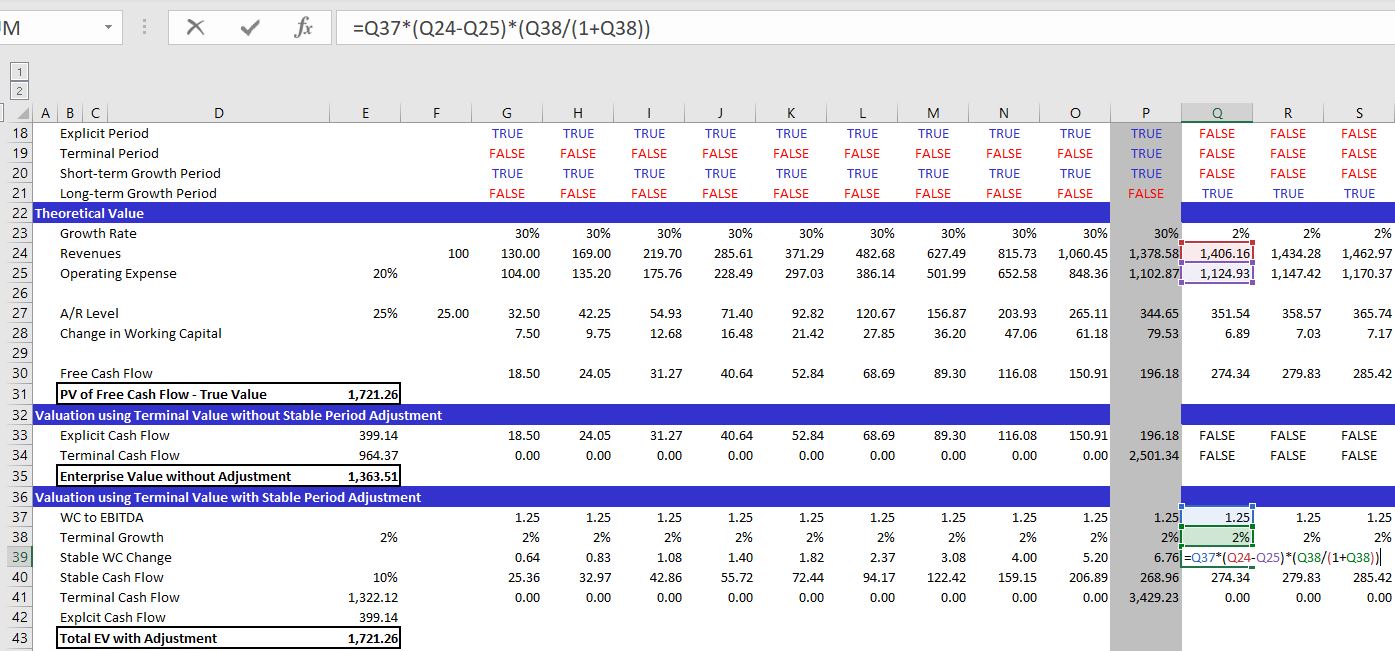

Finance
How To Avoid Double Taxation
Published: November 2, 2023
Learn how to avoid double taxation in finance and optimize your tax strategy to maximize your savings and minimize liabilities.
(Many of the links in this article redirect to a specific reviewed product. Your purchase of these products through affiliate links helps to generate commission for LiveWell, at no extra cost. Learn more)
Table of Contents
Introduction
In the world of finance, one of the most undesirable scenarios for businesses and individuals alike is the prospect of double taxation. Double taxation occurs when a taxpayer is subjected to paying taxes on the same income or asset in multiple jurisdictions. This can result in a significant financial burden and hinder economic growth.
Double taxation can happen in various ways and can occur at both the corporate and individual levels. It often arises as a result of differences in tax laws between countries, which can lead to conflicting rules regarding the taxation of cross-border transactions. The consequences of this can be detrimental to businesses operating internationally, as well as individuals who have income or investments in multiple countries.
Fortunately, there are strategies and mechanisms in place to mitigate the impact of double taxation. These strategies not only help businesses and individuals avoid paying taxes twice on the same income, but also promote international trade and investment by providing a more favorable tax environment.
This article aims to explore the concept of double taxation in more detail, discuss the different types of double taxation, and provide insights into various strategies that can be employed to avoid or minimize its impact. By understanding the complexities of double taxation and being aware of the available options, businesses and individuals can navigate the global tax landscape more effectively and optimize their tax positions.
What is Double Taxation?
Double taxation refers to the situation where a taxpayer is required to pay taxes on the same income or asset in more than one jurisdiction. This can occur when two different countries have jurisdiction to tax the same transaction or income source, resulting in the imposition of taxes by both jurisdictions.
In the context of businesses, double taxation often arises in cross-border transactions. For example, when a multinational company generates income in one country and then repatriates the profits to its home country, it may be subject to taxation in both countries. This can significantly reduce the company’s profitability and impede its ability to compete globally.
Similarly, individuals who have income or investments in multiple countries can also face the challenge of double taxation. For instance, an individual who earns rental income from a property overseas may have to pay taxes on that income both in the foreign country where the property is located and in their home country.
Double taxation not only imposes a financial burden on taxpayers but also creates complications in tax compliance and reporting. It often leads to administrative complexities and can discourage cross-border business activities and investments.
To address the issue of double taxation, countries have entered into bilateral tax treaties known as Double Taxation Agreements (DTAs) or Double Taxation Treaties (DTTs). These agreements provide mechanisms for allocating taxing rights between countries and preventing or reducing the occurrence of double taxation. Additionally, there are various strategies and planning techniques that businesses and individuals can employ to minimize or avoid double taxation.
Understanding and managing double taxation is crucial for businesses and individuals operating in the global marketplace. By navigating the complexities of international taxation systems and leveraging available strategies, they can protect their profitability, ensure tax efficiency, and foster cross-border economic activities.
Types of Double Taxation
Double taxation can manifest in several different forms, depending on the specific circumstances and the tax laws of the jurisdictions involved. Here are some common types of double taxation:
- Economic Double Taxation: This occurs when income is taxed twice at the corporate level and shareholder level. For example, a corporation may pay corporate income tax on its profits, and then shareholders are taxed on the dividends they receive from those profits.
- Double Taxation of Dividends: Dividends paid out to shareholders by corporations may be subject to taxation at both the corporate level and the individual shareholder level. The corporation pays corporate income tax on its earnings, and then when dividends are distributed to shareholders, they may be subject to personal income tax.
- Double Taxation of Capital Gains: Capital gains can be subject to double taxation when an asset is sold for a profit. The first level of taxation occurs at the corporate level, where the corporation pays taxes on the capital gain. The second level of taxation occurs at the individual level when the shareholders receive the distributed capital gains and pay taxes on them.
- Double Taxation of Foreign Income: This type of double taxation occurs when a taxpayer generates income in a foreign country and is also subject to taxation on that income in their home country. For example, a U.S. citizen working abroad may have to pay taxes on their foreign-earned income to both the foreign country where the income was generated and to the U.S.
- Double Taxation in Cross-Border Transactions: Double taxation can arise in cross-border transactions, where businesses engage in international trade or have operations in multiple jurisdictions. For instance, a company might be subject to taxation on its income in the jurisdiction where it operates and also in the jurisdiction where it is based.
It is important to note that not all countries have the same tax laws, and the specific types of double taxation can vary. However, many countries have taken steps to mitigate the impact of double taxation through tax treaties, legislation, and other mechanisms.
Understanding the particular types of double taxation that can affect your business or personal finances is crucial in implementing effective strategies to minimize or avoid it. By identifying the specific areas of double taxation that apply to your situation, you can take informed steps to optimize your tax position and reduce the burden of double taxation.
Understanding Double Taxation Agreements (DTAs)
Double Taxation Agreements (DTAs), also known as Double Taxation Treaties (DTTs) or Tax Treaties, are bilateral agreements entered into between two countries. The primary objective of these agreements is to eliminate or reduce double taxation that may arise from international transactions or activities conducted between the two countries.
DTAs provide a framework for the allocation of taxing rights between the contracting parties. They aim to prevent situations where income or profits are subject to tax in both countries, ensuring that taxpayers are not unfairly burdened by double taxation. These agreements establish rules to determine which jurisdiction has the primary right to tax particular types of income and provide mechanisms to avoid or mitigate double taxation.
DTAs typically cover various aspects of taxation, including but not limited to:
- Residency: DTAs establish criteria to determine an individual’s residency status for tax purposes. This helps in determining which country has the right to tax the individual’s worldwide income.
- Permanent Establishment: DTAs define what constitutes a permanent establishment (PE) in a foreign country for a business entity. This is important in determining whether the business is subject to tax in that country.
- Business Profits: DTAs provide rules for the taxation of business profits earned by a taxpayer in the other country. These rules prevent double taxation by either granting taxing rights solely to the country of residence or by allocating the taxing rights based on certain criteria such as the location of the permanent establishment.
- Dividends, Interest, and Royalties: DTAs establish rules to determine the taxation of dividends, interest, and royalties that flow between the contracting countries. These rules typically aim to prevent or reduce double taxation by either granting reduced withholding tax rates or exempting certain types of income from taxation.
- Capital Gains: DTAs may address the taxation of capital gains realized from the sale of assets, such as real estate, shares, or other securities. These provisions help determine the jurisdiction that has the right to tax the capital gains.
- Exchange of Information: DTAs often include provisions for the exchange of information between tax authorities of the contracting countries. This facilitates cooperation and the prevention of tax evasion or avoidance.
DTAs play a vital role in facilitating international trade and investment by providing certainty and predictability regarding cross-border taxation. By eliminating or reducing double taxation, these agreements help businesses and individuals avoid financial hardships and encourage cross-border economic activities.
It is important for businesses and individuals engaged in international transactions or activities to study the relevant DTAs between the countries involved. By understanding the provisions and benefits outlined in the DTAs, taxpayers can effectively structure their affairs to optimize tax positions and minimize the impact of double taxation.
Strategies to Avoid Double Taxation
While double taxation can present challenges for businesses and individuals operating in multiple jurisdictions, there are effective strategies that can be employed to mitigate its impact. These strategies encompass various approaches and mechanisms to avoid or minimize double taxation. Here are some key strategies to consider:
- Utilizing Tax Exemptions and Deductions: One way to tackle double taxation is by taking advantage of tax exemptions and deductions provided by tax laws. Many countries offer specific exemptions or deductions for certain types of income or transactions to mitigate the burden of double taxation. This may include exemptions for certain foreign-sourced income or deductions for expenses incurred in generating that income.
- Utilizing Tax Credits: Tax credits are another effective strategy to avoid double taxation. Tax credits offset the taxes paid in one jurisdiction against the taxes owed in another jurisdiction. This allows taxpayers to reduce their overall tax liability by the amount of taxes already paid in the other jurisdiction, ensuring that income is not taxed twice.
- Establishing a Holding Company: Another approach to minimize double taxation is to establish a holding company in a jurisdiction that offers favorable tax treatment. By setting up a holding company in a country with advantageous tax laws, businesses can structure their operations to take advantage of tax benefits, such as dividends received deductions or participation exemptions.
- Utilizing Transfer Pricing: Transfer pricing refers to the pricing of transactions between related entities in different jurisdictions. By carefully structuring the transfer prices of goods, services, or intellectual property, businesses can allocate profits across jurisdictions in a way that minimizes the impact of double taxation. This requires adhering to transfer pricing regulations and ensuring that prices are set at arm’s length.
- Seeking Professional Advice: Double taxation can be a complex issue, and seeking professional advice from tax experts, accountants, or international tax lawyers can be invaluable. These professionals can provide guidance on the specific tax laws and regulations in different jurisdictions, help analyze your tax position, and develop tailored strategies to minimize the effects of double taxation while ensuring compliance with applicable laws.
It is important to note that the effectiveness of these strategies may vary depending on the specific circumstances and the tax laws of the jurisdictions involved. Therefore, it is crucial to carefully evaluate and implement these strategies in consultation with professionals well-versed in international taxation to achieve optimal results.
By utilizing appropriate strategies to mitigate double taxation, businesses and individuals can ensure tax efficiency, protect their profitability, and promote cross-border economic activities.
Utilizing Tax Exemptions and Deductions
One of the strategies to reduce the impact of double taxation is to take advantage of tax exemptions and deductions provided by tax laws. Many countries have specific provisions that allow taxpayers to exempt certain types of income or claim deductions for expenses incurred in generating that income. By utilizing these exemptions and deductions, businesses and individuals can minimize their tax liabilities and avoid paying taxes twice on the same income.
Here are some key points to consider when utilizing tax exemptions and deductions:
- Foreign-Sourced Income Exemptions: Many countries offer exemptions for foreign-sourced income to avoid double taxation. These exemptions may apply to specific types of income, such as dividends, interest, or capital gains, earned from foreign sources. By claiming these exemptions, taxpayers can ensure that income generated abroad is not subjected to taxation in their home country, thus avoiding double taxation.
- Expenses Deductions: Deducting expenses incurred in generating income is another way to reduce the impact of double taxation. Businesses and individuals can deduct the costs associated with earning income in one jurisdiction, reducing their taxable income in that jurisdiction. This is particularly relevant for businesses engaging in cross-border transactions or individuals earning income from foreign sources.
- Tax Incentives and Credits: Some countries provide tax incentives or credits to promote specific industries or activities. These incentives can reduce the overall tax liability of businesses or individuals and help offset the tax burden in another jurisdiction. Examples of tax incentives include research and development credits, investment tax credits, or incentives for environmentally friendly activities.
- Treaty Benefits: Double Taxation Agreements (DTAs) also often provide specific provisions for exemptions or reduced tax rates. These provisions aim to prevent or reduce double taxation and provide benefits to taxpayers covered by the treaty. Taxpayers can leverage these treaty benefits to minimize or eliminate the tax liabilities in one jurisdiction by utilizing the provisions mentioned in the relevant tax treaty.
- Proper Documentation and Compliance: When utilizing tax exemptions and deductions, it is essential to maintain proper documentation and comply with the tax laws of the respective jurisdictions. This includes keeping records of expenses, maintaining supporting documents, and fulfilling any reporting requirements. By ensuring compliance, businesses and individuals can avoid potential tax disputes or challenges from tax authorities.
It is important to note that tax exemptions and deductions vary from country to country, and their applicability depends on specific tax laws. Therefore, consulting with tax professionals or experts who have in-depth knowledge of the tax laws of the relevant jurisdictions is crucial to identify and properly utilize available exemptions and deductions.
By strategically utilizing tax exemptions and deductions, businesses and individuals can optimize their tax positions and minimize the impact of double taxation, resulting in increased tax efficiency and savings.
Utilizing Tax Credits
Utilizing tax credits is a valuable strategy to mitigate the impact of double taxation. Tax credits effectively offset the taxes paid in one jurisdiction against the taxes owed in another jurisdiction, ensuring that income or assets are not taxed twice. By utilizing tax credits, businesses and individuals can reduce their overall tax liability and avoid the financial burden of double taxation.
Here are some key considerations when utilizing tax credits:
- Foreign Tax Credits: Many jurisdictions allow taxpayers to claim foreign tax credits for taxes paid on income or assets in another country. These credits can be claimed for various types of income, such as dividends, interest, royalties, or capital gains. By claiming foreign tax credits, taxpayers can reduce their tax liability in their home country by the amount of taxes already paid in the foreign country.
- Direct Tax Credits: Direct tax credits are granted for the tax paid to another jurisdiction on specific types of income. These credits allow taxpayers to directly offset the tax liability in their home country, reducing the amount owed to the local tax authority.
- Indirect Tax Credits: Indirect tax credits are another type of tax credit that may be available to taxpayers. Instead of directly reducing the tax liability, indirect tax credits are applied against other taxes, such as withholding tax, that are payable in the home country. These credits indirectly lower the overall tax burden on a taxpayer.
- Carryback and Carryforward of Credits: Some jurisdictions allow taxpayers to carry unused tax credits forward or backward to offset taxes in future or previous years. This flexibility provides taxpayers with the opportunity to utilize tax credits more effectively over time, ensuring that they are not lost or wasted.
- Treaty-Related Credits: Double Taxation Agreements (DTAs) or Tax Treaties often contain provisions related to tax credits. These agreements aim to prevent or reduce double taxation by providing specific rules for granting tax credits. Taxpayers can leverage these treaty benefits to optimize their tax positions and eliminate or minimize double taxation.
Utilizing tax credits requires a thorough understanding of the tax laws and regulations of both the home country and the foreign jurisdiction in which income or assets are sourced. It is essential to consult with tax professionals or experts who can guide taxpayers through the intricacies of tax credits and ensure compliance with relevant laws.
By effectively utilizing tax credits, businesses and individuals can reduce their tax liabilities, enhance tax efficiency, and avoid the financial burden of double taxation. This not only optimizes their tax position but also promotes cross-border economic activities and encourages international trade and investment.
Establishing a Holding Company
Establishing a holding company is a strategic approach to mitigate the impact of double taxation, particularly for businesses with international operations. A holding company is a separate legal entity formed to own and control other companies or investments. By setting up a holding company, businesses can structure their operations in a way that optimizes tax efficiency and reduces the risk of double taxation.
Here are some key considerations when establishing a holding company:
- Tax Planning and Structure: One of the primary benefits of a holding company is the ability to strategically plan and structure the ownership of subsidiaries or investments. By carefully designing the ownership structure and the flow of income, a holding company can take advantage of tax benefits such as dividends received deductions, participation exemptions, or capital gains tax advantages.
- Reducing Withholding Taxes: Holding companies can be established in jurisdictions that offer favorable tax treatment in terms of withholding taxes. By routing payments through a holding company located in a jurisdiction with lower withholding tax rates, businesses can reduce the amount of tax withheld on dividends, interest, or royalties.
- Asset Protection: Holding companies can also provide asset protection benefits. By segregating assets and liabilities within the corporate structure, a holding company can shield its subsidiaries or investments from legal or financial risks. This can help safeguard the overall wealth and assets of the business.
- Consolidating Control and Management: A holding company structure allows for centralized control and management of subsidiaries or investments. This can simplify decision-making processes and facilitate efficient governance and oversight. It also offers the opportunity for centralized tax planning and management of income streams.
- Accessing Tax Treaties: Holding companies established in jurisdictions with extensive tax treaty networks can allow businesses to access benefits provided by Double Taxation Agreements (DTAs). These agreements often include provisions for reduced withholding tax rates, exemptions, or credits, thereby minimizing the risk of double taxation.
- Consideration of Economic Substance: When establishing a holding company, it is essential to consider the concept of economic substance. Tax authorities may require that the holding company has genuine economic activities and substance in the jurisdiction where it is established. This ensures that the holding company is not merely a shell company created for tax avoidance purposes.
It is important to note that establishing a holding company requires careful planning and consideration of various legal, regulatory, and tax implications. Consulting with professionals specializing in international tax law and corporate structuring is essential to ensure compliance with applicable laws and to maximize the benefits of a holding company.
By establishing a holding company, businesses can optimize their tax positions, mitigate the impact of double taxation, and create a more efficient and effective structure for managing their domestic and international operations.
Utilizing Transfer Pricing
Utilizing transfer pricing is an important strategy for businesses to address the issue of double taxation, particularly in the context of cross-border transactions. Transfer pricing refers to the pricing of goods, services, or intellectual property transferred between related entities, such as subsidiaries or affiliates, in different jurisdictions. By carefully structuring transfer prices, businesses can allocate profits in a way that minimizes the impact of double taxation.
Here are some key considerations when utilizing transfer pricing:
- Arm’s Length Principle: Transfer pricing should adhere to the arm’s length principle, which requires that transactions between related entities be conducted as if they were independent parties dealing at fair market value. Ensuring that transfer prices are set at arm’s length helps to prevent tax authorities from challenging the prices and adjusting taxable income.
- Comparability Analysis: Conducting a comparability analysis is essential to determine the appropriate transfer pricing methodology and establish an arm’s length price. This analysis involves benchmarking transactions against similar transactions conducted between unrelated parties in comparable circumstances.
- Transfer Pricing Methods: There are several recognized transfer pricing methods, including the Comparable Uncontrolled Price (CUP) method, Resale Price Method (RPM), Cost Plus Method (CPM), and Profit Split Method (PSM). Businesses should carefully select the most appropriate method based on the nature of the transaction and the availability of reliable comparables.
- Documentation and Compliance: Proper documentation and compliance with transfer pricing regulations are crucial. Businesses should maintain transfer pricing documentation that outlines the analysis and methodologies used to determine transfer prices. Compliance with local transfer pricing regulations and reporting requirements is essential to avoid disputes with tax authorities.
- Advance Pricing Agreements (APAs): APAs are agreements between taxpayers and tax authorities that provide certainty regarding transfer pricing methodologies and pricing for a specified period. APAs help reduce the risk of transfer pricing disputes and provide a more predictable tax environment for businesses engaged in cross-border transactions.
- BEPS Framework: The Base Erosion and Profit Shifting (BEPS) initiative, led by the Organization for Economic Cooperation and Development (OECD), aims to address concerns related to aggressive tax planning and transfer pricing abuses. Compliance with the BEPS framework, which includes country-by-country reporting and enhanced transfer pricing documentation requirements, is crucial to ensure compliance and minimize the risk of double taxation.
Implementing effective transfer pricing practices requires a comprehensive understanding of local transfer pricing regulations, international tax guidelines, and business operations. Businesses should seek the guidance of professionals specializing in transfer pricing to develop and implement optimal transfer pricing strategies that align with their business objectives and mitigate the risk of double taxation.
By utilizing transfer pricing methods and adhering to arm’s length principles, businesses can effectively allocate profits and minimize the impact of double taxation, while ensuring compliance with applicable tax laws and regulations.
Seeking Professional Advice
When navigating the complexities of double taxation, seeking professional advice from tax experts, accountants, or international tax lawyers is crucial. These professionals possess the specialized knowledge and experience necessary to provide tailored guidance and strategies to mitigate the impact of double taxation.
Here are some key reasons why seeking professional advice is important:
- Expertise in International Taxation: Double taxation involves intricate international tax laws and regulations. Tax professionals have in-depth knowledge of these laws and stay updated with the latest developments, ensuring that businesses and individuals receive accurate and timely advice.
- Identifying Applicable Tax Treaties: Tax professionals can help identify the relevant Double Taxation Agreements (DTAs) or Tax Treaties between countries. They can analyze the provisions and benefits offered by these treaties, guiding businesses and individuals in utilizing the provisions that help minimize or eliminate double taxation.
- Tailored Strategies and Planning: Every business or individual situation is unique, and professional advice ensures that strategies are tailored to specific needs. Tax professionals can evaluate the specific circumstances, analyze the available options, and develop personalized strategies to optimize tax positions and minimize the impact of double taxation.
- Compliance with Tax Laws: Tax professionals ensure compliance with local and international tax laws. They can provide guidance regarding reporting requirements, documentation, and other compliance obligations, minimizing the risk of penalties or disputes with tax authorities.
- Negotiating Advance Pricing Agreements (APAs): Tax professionals can assist in negotiating and implementing APAs with tax authorities. APAs provide certainty and stability in transfer pricing arrangements and help businesses reduce the risk of transfer pricing disputes and double taxation.
- Addressing Cross-Border Tax Planning: Cross-border tax planning requires a deep understanding of the tax laws of multiple jurisdictions. Tax professionals can develop comprehensive tax strategies that consider the specific tax implications in different jurisdictions, minimizing the risk of double taxation and ensuring tax efficiency.
Working with tax professionals provides businesses and individuals with a comprehensive and strategic approach to managing double taxation. Their expertise helps navigate the complex landscape of international taxation, identify opportunities for tax optimization, and ensure compliance with legal and regulatory requirements.
However, it is important to choose reputable and experienced professionals with a proven track record in international tax matters. Engaging with professionals who are familiar with your specific industry and have a deep understanding of the jurisdictions involved will ensure the most effective advice and guidance.
By seeking professional advice, businesses and individuals can benefit from personalized strategies and expert guidance, ultimately minimizing the impact of double taxation and ensuring tax optimization.
Conclusion
Double taxation can pose significant challenges for businesses and individuals operating in multiple jurisdictions. However, by understanding the concept of double taxation and implementing effective strategies, the impact of double taxation can be minimized or even avoided.
In this article, we explored the concept of double taxation and its various types. We discussed the importance of understanding Double Taxation Agreements (DTAs) and how they provide mechanisms to prevent or reduce double taxation. Additionally, we explored strategies such as utilizing tax exemptions and deductions, employing tax credits, establishing holding companies, utilizing transfer pricing, and seeking professional advice.
Utilizing tax exemptions and deductions can help reduce taxable income and mitigate the burden of double taxation. By understanding and utilizing tax credits, businesses and individuals can offset taxes paid in one jurisdiction against taxes owed in another, ensuring income is not taxed twice. Establishing a holding company can provide a favorable tax environment and allow for efficient tax planning and structure. By carefully structuring transfer pricing, businesses can allocate profits in a way that minimizes the impact of double taxation. Lastly, seeking professional advice is crucial as tax professionals can provide specialized expertise and develop tailored strategies to address double taxation.
In conclusion, navigating the complexities of double taxation requires a proactive and strategic approach. By employing the right strategies and seeking professional advice, businesses and individuals can optimize their tax positions, minimize the impact of double taxation, and promote cross-border economic activities.
It is important to note that tax laws and regulations are subject to change, and the specific strategies mentioned in this article may differ based on the jurisdictions involved. Therefore, it is recommended to consult with tax professionals or experts to ensure compliance with the latest tax laws and regulations and to develop personalized strategies tailored to each unique situation.














